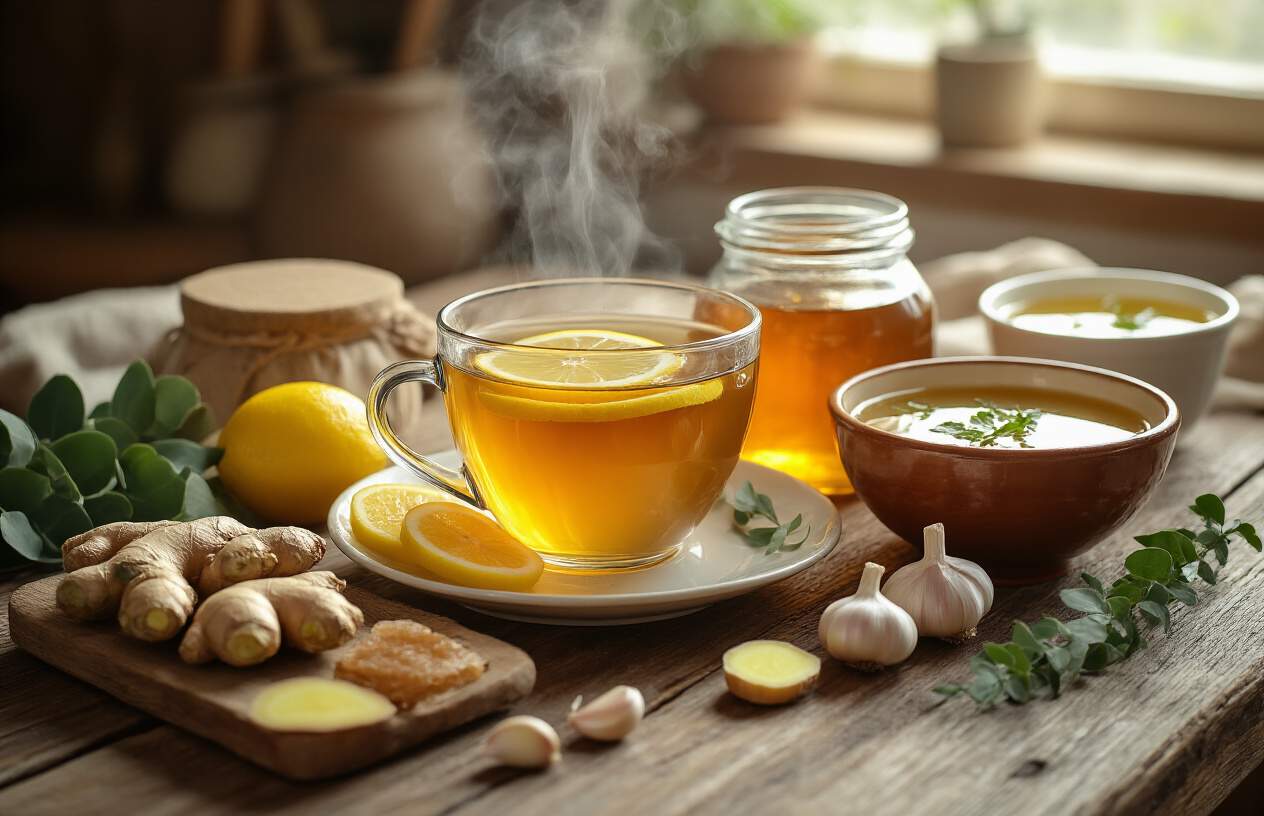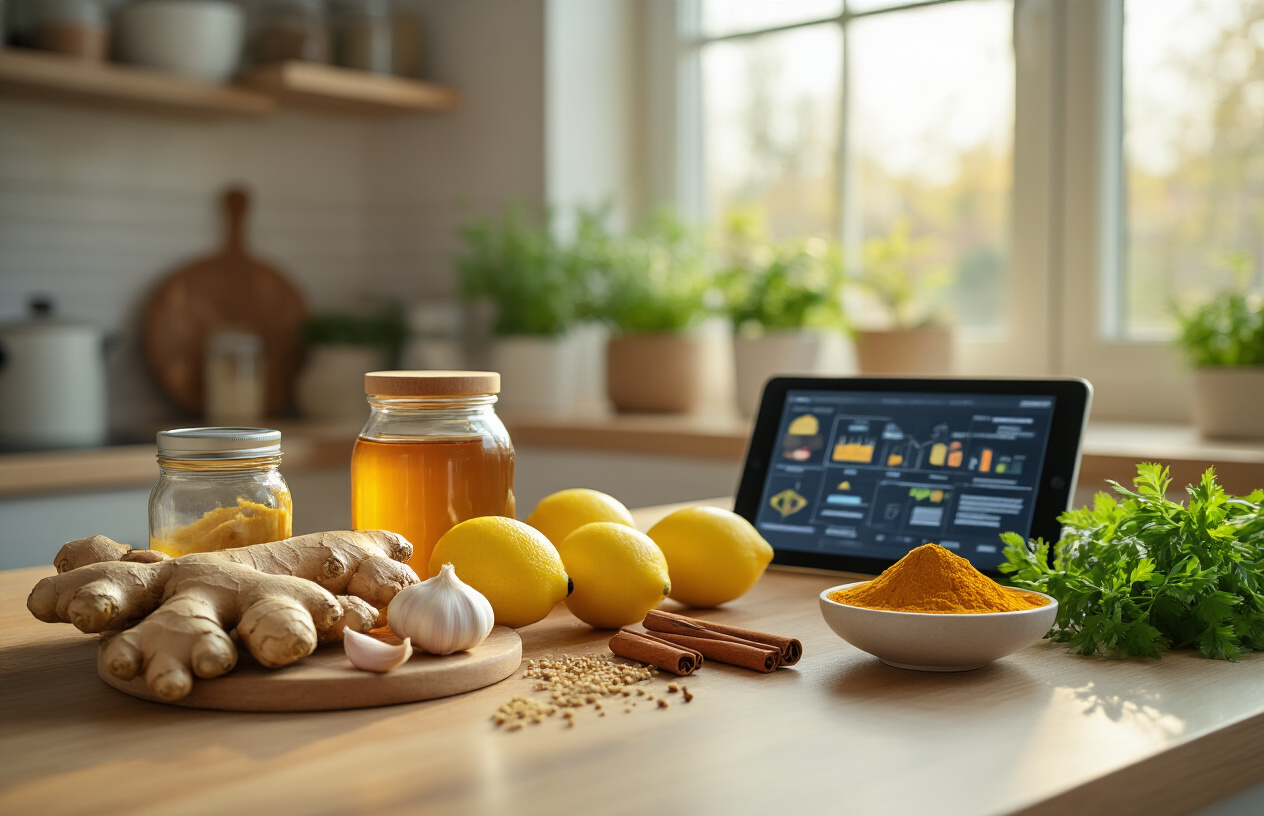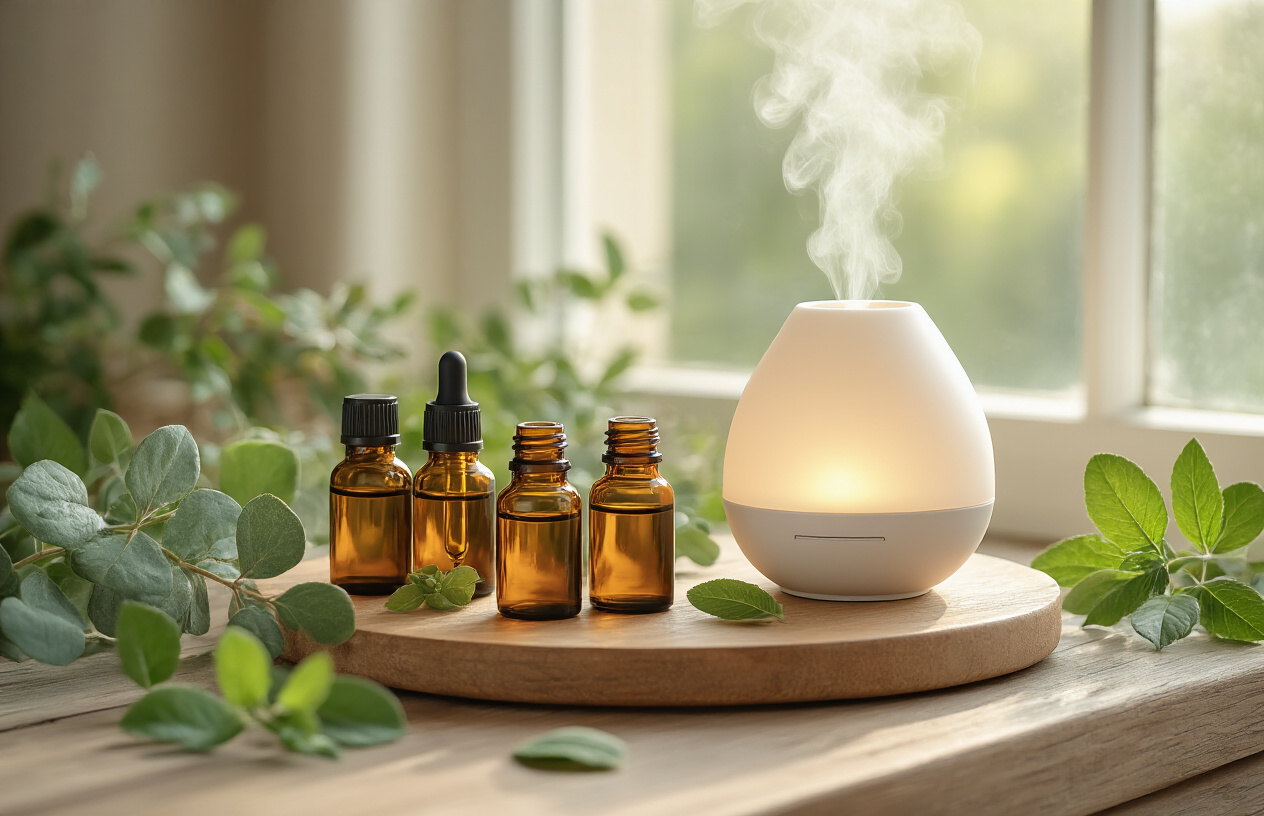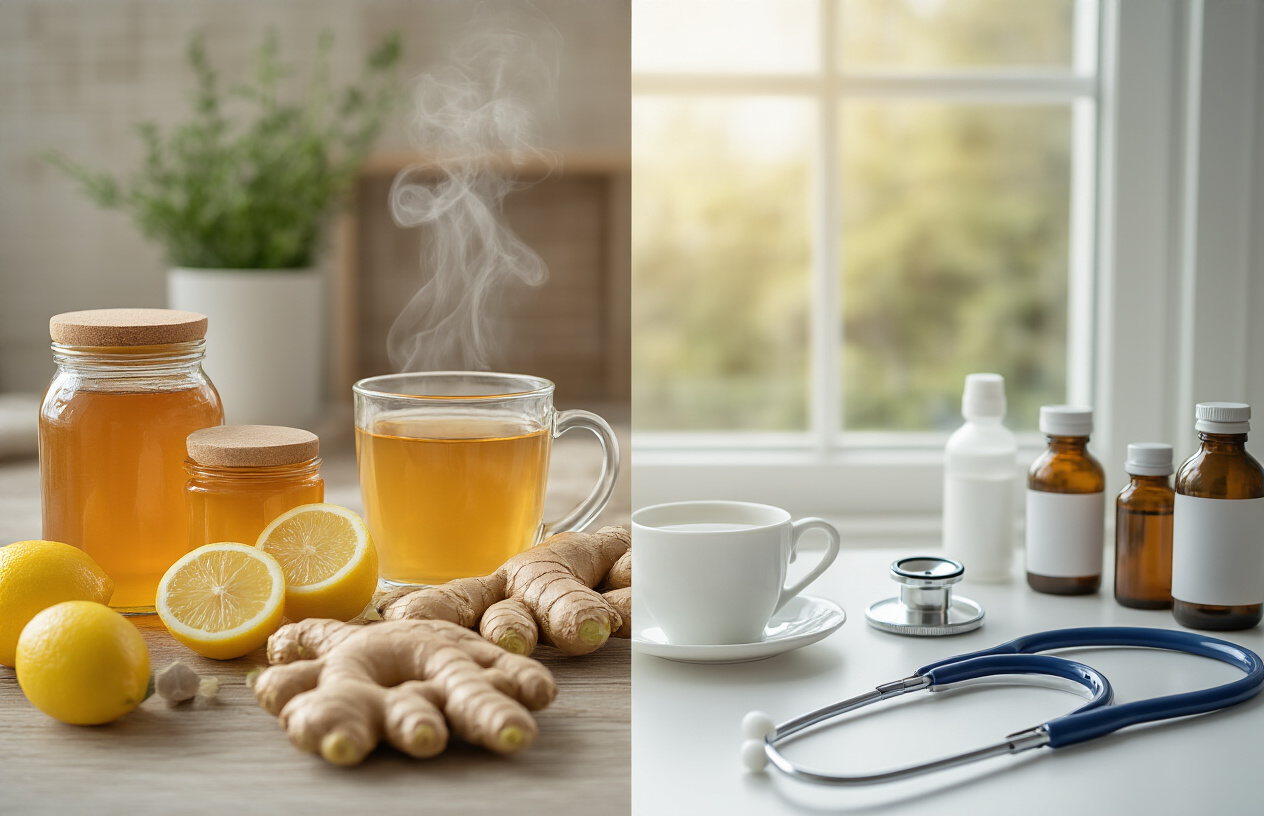Got a stuffy nose and scratchy throat? You’re not alone. Every year, millions of people search for home remedies for colds that actually deliver relief without a trip to the pharmacy.
This guide is for anyone who wants to tackle cold symptoms naturally – busy parents, students on tight budgets, or anyone who prefers traditional cold treatments before reaching for over-the-counter medications.
Your grandmother’s chicken soup advice might have more science behind it than you think. We’ll explore which natural cold remedies have real research backing them up, from simple hydration strategies to kitchen pantry solutions that can ease congestion and speed recovery. You’ll also discover how essential oils and aromatherapy can provide natural congestion relief, plus learn when home cold cures work best and when it’s time to see a doctor.
Ready to turn your kitchen into a natural pharmacy? Let’s dive into the cold-fighting wisdom that combines generations of knowledge with modern science.
Traditional Remedies That Actually Work

Honey’s proven antibacterial and soothing properties
Raw honey acts as nature’s medicine cabinet, containing powerful antibacterial compounds that fight infection while coating your throat with soothing relief. Studies show honey reduces cough frequency better than many over-the-counter medications, making it one of the most effective natural cold remedies available.
Ginger’s anti-inflammatory effects on respiratory symptoms
Fresh ginger root contains gingerol, a potent anti-inflammatory compound that reduces swelling in respiratory passages and eases congestion. This traditional cold treatment also helps break up mucus while providing warming comfort that penetrates deep into your chest and sinuses.
Chicken soup’s immune-boosting nutrients and hydration benefits
Grandma’s chicken soup delivers more than comfort – it provides essential electrolytes, protein, and vitamins that support immune function while keeping you hydrated. The steam opens nasal passages, and research confirms this classic home remedy for colds genuinely helps reduce inflammation and speeds recovery.
Garlic’s natural antiviral compounds
Garlic contains allicin, a sulfur compound that demonstrates remarkable antiviral properties against cold-causing viruses. Crushing fresh garlic cloves releases maximum potency, making this pungent natural flu remedy a scientifically-backed weapon in your cold-fighting arsenal that works best when consumed raw.
Hydration and Rest Strategies for Faster Recovery

Warm Liquids That Ease Congestion and Throat Irritation
Warm liquids work like magic for cold symptoms relief by thinning mucus and soothing inflamed throat tissues. Herbal teas with ginger, honey, and lemon provide anti-inflammatory benefits while delivering essential fluids. Bone broth supplies electrolytes and amino acids that support immune function. Warm water with salt creates a gentle throat rinse that reduces bacterial load. Even plain warm water helps maintain proper hydration levels, allowing your body’s natural defense mechanisms to work more effectively against viral infections.
Steam Inhalation Techniques for Nasal Relief
Steam inhalation opens blocked nasal passages by loosening thick mucus and reducing sinus pressure. Fill a large bowl with hot water, lean over it with a towel draped over your head, and breathe deeply for 10-15 minutes. Adding eucalyptus oil or peppermint enhances the decongestant effect through natural menthol compounds. Hot showers provide similar benefits with less preparation time. The moist heat increases blood circulation to nasal tissues, promoting faster healing while providing immediate natural congestion relief that rivals commercial decongestants.
Sleep Optimization for Enhanced Immune Function
Quality sleep supercharges your immune system’s ability to fight off cold viruses. During deep sleep, your body produces infection-fighting cells and antibodies at peak levels. Elevate your head with extra pillows to reduce nighttime congestion and improve breathing. Keep your bedroom cool but comfortable, around 65-68°F, as fever often disrupts sleep patterns. Consider using a humidifier to maintain optimal moisture levels, preventing dry air from irritating already sensitive nasal passages and throat tissues throughout the night.
Kitchen Pantry Solutions Backed by Research

Salt water gargles for throat pain reduction
Salt water gargles remain one of the most effective home remedies for colds, specifically targeting throat discomfort. Research shows that gargling with warm salt water (1/2 teaspoon salt in 8 ounces of water) reduces inflammation by drawing out excess fluid from swollen tissues. The osmotic effect creates an inhospitable environment for bacteria while providing immediate soothing relief. Studies indicate that regular gargling can reduce the severity and duration of upper respiratory infections by up to 40%.
Turmeric’s powerful anti-inflammatory properties
Turmeric contains curcumin, a compound with scientifically proven anti-inflammatory and antioxidant properties that make it exceptional among natural cold remedies. Clinical studies demonstrate that curcumin can reduce inflammatory markers and boost immune response. Mix 1/2 teaspoon of turmeric powder with warm milk or honey to create a potent homemade cold medicine. The golden spice helps reduce mucus production, eases respiratory congestion, and supports the body’s natural healing processes during cold recovery.
Lemon and vitamin C for immune system support
Fresh lemons pack a powerful punch of vitamin C, delivering up to 51mg per fruit – nearly 60% of daily requirements. While vitamin C won’t prevent colds, research confirms it can reduce symptom duration by 8-10% and severity in regular users. Lemons also contain citric acid and flavonoids that support immune function. Create a warming natural congestion relief drink by mixing fresh lemon juice with warm water and honey, providing both hydration and immune-boosting compounds.
Apple cider vinegar’s antimicrobial effects
Apple cider vinegar contains acetic acid, which laboratory studies show possesses antimicrobial properties against various pathogens. While direct evidence for cold symptoms relief remains limited, ACV’s acidic environment may help create unfavorable conditions for bacteria and viruses. Dilute 1-2 tablespoons in warm water with honey to make it palatable. The prebiotic properties of raw, unfiltered apple cider vinegar may also support gut health, which plays a crucial role in immune system function and recovery.
Essential Oils and Aromatherapy for Symptom Relief

Eucalyptus Oil for Respiratory Congestion
Eucalyptus oil delivers powerful decongestant properties that help open blocked airways naturally. Add 3-5 drops to a bowl of steaming water and inhale deeply for 5-10 minutes to break up mucus and ease breathing. The oil’s compound eucalyptol acts as an expectorant, making it easier to cough up phlegm. You can also apply diluted eucalyptus oil to your chest or add drops to a diffuser for continuous relief. This natural cold remedy works by reducing inflammation in nasal passages while providing that cooling sensation that instantly makes you feel better.
Peppermint Oil for Headache and Sinus Pressure
Peppermint oil’s menthol content provides fast-acting relief for tension headaches and sinus pressure that often accompany colds. Dilute a drop with carrier oil and massage into temples, avoiding the eye area completely. The cooling effect helps relax tight muscles while opening sinuses for better drainage. Studies show menthol can reduce pain intensity by up to 40% within 15 minutes. For sinus congestion, add peppermint oil to steam inhalation or apply diluted oil under your nose. This home remedy for colds works by numbing pain receptors and improving blood circulation to affected areas.
Tea Tree Oil’s Antiviral Properties
Tea tree oil contains powerful compounds that fight viruses and bacteria, making it an effective natural cold remedy. Research demonstrates its ability to inhibit viral replication and boost immune system response. Add 2-3 drops to your diffuser or mix with carrier oil for chest application. Never use undiluted tea tree oil directly on skin, as it can cause irritation. The oil’s antimicrobial properties help prevent secondary infections while reducing overall cold duration. For natural congestion relief, combine tea tree oil with eucalyptus in steam treatments. This traditional cold treatment supports your body’s natural healing process while providing symptom relief.
When to Use Home Remedies vs. Medical Treatment

Identifying Symptoms That Require Professional Care
Know when home remedies for colds aren’t enough. Seek medical attention if you experience high fever above 103°F, severe headache, difficulty breathing, chest pain, or symptoms lasting over 10 days. Children under three months with fever, persistent ear pain, or green nasal discharge with facial pain need professional evaluation. Blood in mucus, wheezing, or worsening symptoms after initial improvement signal complications requiring medical care.
Combining Natural Remedies with Conventional Medicine Safely
Natural cold remedies work well alongside conventional treatments when used correctly. Check with your pharmacist before mixing herbal supplements with medications, as some interactions can reduce effectiveness or cause side effects. Honey shouldn’t be combined with cough suppressants, and echinacea can interfere with certain immune medications. Space natural treatments at least two hours from prescription medicines, and always inform your doctor about traditional cold treatments you’re using.
Timeline Expectations for Cold Recovery
Most colds resolve within 7-10 days using natural congestion relief methods. Expect peak symptoms days 2-3, with gradual improvement afterward. Home cold cures can reduce symptom severity and duration by 1-2 days but won’t eliminate the cold entirely. Lingering mild cough or congestion for up to three weeks is normal. If symptoms worsen after day 5 or persist beyond two weeks without improvement, your immune system may need medical support beyond homemade cold medicine approaches.

Your grandmother wasn’t just being kind when she pushed chicken soup and honey tea on you during cold season – she was actually onto something scientifically sound. Many of the traditional remedies passed down through generations have real backing from modern research, from honey’s proven ability to soothe coughs to the immune-boosting power of staying properly hydrated. The spices and herbs sitting in your kitchen right now, like ginger and garlic, can genuinely help your body fight off cold symptoms and speed up recovery time.
The best approach combines the wisdom of these time-tested remedies with common sense about when professional medical help is needed. Start with gentle home treatments for mild symptoms, but don’t hesitate to see a doctor if your cold drags on for more than 10 days or if you develop severe symptoms like high fever or difficulty breathing. Your kitchen cabinet might be your first line of defense, but knowing when to step up your treatment game is just as important as knowing which remedies actually work.